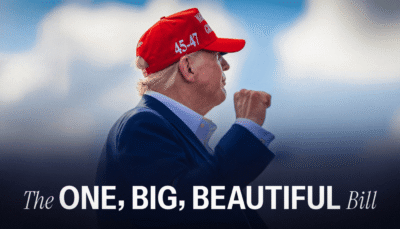As the U.S. Senate prepares for a pivotal vote on the GENIUS Act, a landmark bill to regulate stablecoins, Republican leadership is signaling a strategic shift. Senate Majority Leader John Thune (R-SD), who previously backed fast-tracking the legislation, now says the GOP is open to bipartisan amendments aimed at addressing Democratic concerns.
“Changes can be made on the floor for sure,” Thune told reporters Monday, suggesting that Republicans are ready to compromise in order to secure the 60 votes needed to advance the bill.
The GENIUS Act, which proposes a federal framework for stablecoin issuance and oversight, has become a flashpoint in the broader crypto regulation debate. Its provisions on anti-money laundering, foreign issuer scrutiny, and national security have drawn scrutiny from across the aisle. Thune’s comments reflect growing urgency to strike a bipartisan deal before the August recess, or risk delaying what many consider to be the most comprehensive stablecoin policy effort in Congress to date.
Democratic Opposition Stalls Republican Timeline

Hopes of pushing the GENIUS Act to a swift vote this week were dashed after nine Senate Democrats issued a joint statement demanding key revisions. Among them were four lawmakers who had previously supported the bill in committee, marking a significant setback for its momentum.
The Democrats cited gaps in the current draft, calling for tighter anti-money laundering protocols, greater oversight of foreign-controlled stablecoin issuers, and stricter national security and accountability provisions. Their opposition disrupted the GOP’s fast-track strategy and reset the negotiating table.
Despite holding a slim 53-seat majority, Senate Republicans require at least seven Democratic votes to overcome procedural thresholds. Without concessions, the bill risks becoming stalled in a legislative bottleneck—highlighting just how sensitive crypto legislation remains in a polarized Washington.
Inside the GENIUS Act: A Regulatory Pivot for Stablecoins
At the center of the GENIUS Act is a sweeping proposal to bring stablecoin issuers under federal regulatory oversight, marking a significant evolution in how the U.S. approaches digital asset policy. The bill grants issuance rights to both banks and non-bank financial entities, provided they hold full 1:1 reserves in cash or high-quality liquid assets—effectively guaranteeing that every stablecoin is fully backed.
This standard aims to instill market confidence while offering clear consumer protections, particularly as stablecoins now play a critical role in global crypto markets. With a combined market cap exceeding $240 billion, according to CoinGecko, stablecoins have outgrown their regulatory framework, creating risks that lawmakers say must be addressed.
The GENIUS Act offers more flexibility than the competing STABLE Act in the House, which imposes tighter guardrails around who can issue stablecoins and where reserves can be held. Supporters of the Senate version argue it strikes a better balance between innovation and systemic safeguards, allowing the private sector to scale digital payment systems without compromising financial stability.
Trump Ties and Political Optics Add Pressure
Adding to the bill’s complexity are reports that a $2 billion stablecoin transaction may involve business entities connected to President Donald Trump’s family. The allegations, though unconfirmed, have amplified Democratic wariness about the potential for political conflicts of interest.
Senator Elizabeth Warren and Majority Leader Chuck Schumer have previously raised red flags about crypto’s entanglements with political financing and foreign influence—issues that are now central to the debate around stablecoin legislation. With the GENIUS Act under national scrutiny, even its most ardent backers are being forced to weigh the broader implications of passing a bill without addressing such concerns head-on.
Quick Facts
- Senate Majority Leader John Thune says Republicans are open to amending the GENIUS Act to secure Democratic support.
- Nine Senate Democrats have called for stronger anti-money laundering, foreign oversight, and national security protections.
- The GENIUS Act would require stablecoin issuers to maintain 1:1 reserves and receive federal approval.
- Reports of Trump-affiliated entities engaging in large stablecoin transactions have intensified political scrutiny of the bill.





